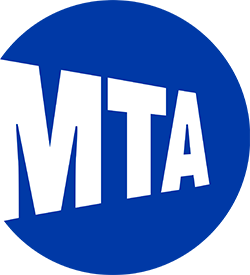Your employer does not care about you.
You need to wrap your head around this fact because it will become painfully evident as soon as you are injured on the job. Often, your employer will start doing anything in their power to minimize your workers’ compensation claim or avoid paying it altogether.
What you do directly after the accident will determine how large your settlement is and whether you’ll be able to recover compensation for your injuries.
#1) Get Medical Attention
Don’t say, “I’m fine,” and don’t put off medical attention. Your employer will generally tell you what doctor to visit in a non-emergency situation. In an emergency, call an ambulance and get to an ER.
Follow the medical provider’s instructions to the letter. If you don’t, they will use your failure to do so against you.
Within 48 hours of being hurt on the job, the doctor you choose must complete and mail Form C-4, the Preliminary Medical Report.
Every 45 days, your doctor must submit a report detailing your process.
#2) Notify Your Employer in Writing
Fill out an incident report or write an official letter within 30 days of the accident. You must do so to retain your right to a workers’ compensation claim.
Stick to the facts: don’t embellish or volunteer information. Tell your employer precisely what happened and how it happened.
Your employer has ten days to notify their insurance company and the Workers Compensation Board.
#3) Fill Out Form C-3
Form C-3 lets you notify the New York Workers Compensation Board that you’ve suffered an injury at work.
You have two years from the accident date to file this form, but you’ll want to file it a lot faster. We recommend getting it done as soon after the accident as possible.
#4) Know What Workers’ Compensation Does and Does Not Pay
Workers’ compensation pays all of your medical bills. Workers’ compensation also pays you a living allowance of ⅔ x your average weekly wage x % of disability. The Workers Compensation Board caps benefits at $1,125.46 per week.
You won’t be paid for pain and suffering like in a personal injury case, but matters of “fault” also don’t enter the picture.
You should start receiving payments within 18 days unless you return to work within seven days of the accident. Your payment may also be delayed if your employer or their insurance company files a dispute. The Workers Compensation Board makes payments every two weeks.
#5) Get a Lawyer As Soon as There is a Problem
Ideally, your employer’s workers’ compensation insurance provider will pay the claim without creating problems.
If the employer disputes the claim or the insurance company denies the claim, your chances of resolving the problem on your own are slim to none. The power dynamic simply works against you.
In addition, you may need an attorney’s help once you return to work.
Sometimes, doctors recommend light duty, and employers demand you perform tasks that violate medical recommendations. Employers may also make life unpleasant in the hopes that you’ll quit. In either case, you must retain an attorney to protect your rights.
Get Help Today
If you have gotten hurt at work and are having trouble with workers’ compensation, contact the Law Offices of Sher, Herman, Bellone, and Tippograph today. We’re experienced workers’ compensation attorneys who are ready to protect your rights.
See also:
How Credibility Impacts Your Workers’ Comp Claim
Occupational Diseases and Workers’ Compensation
Workplace Injuries Are Covered Through Workers’ Compensation



